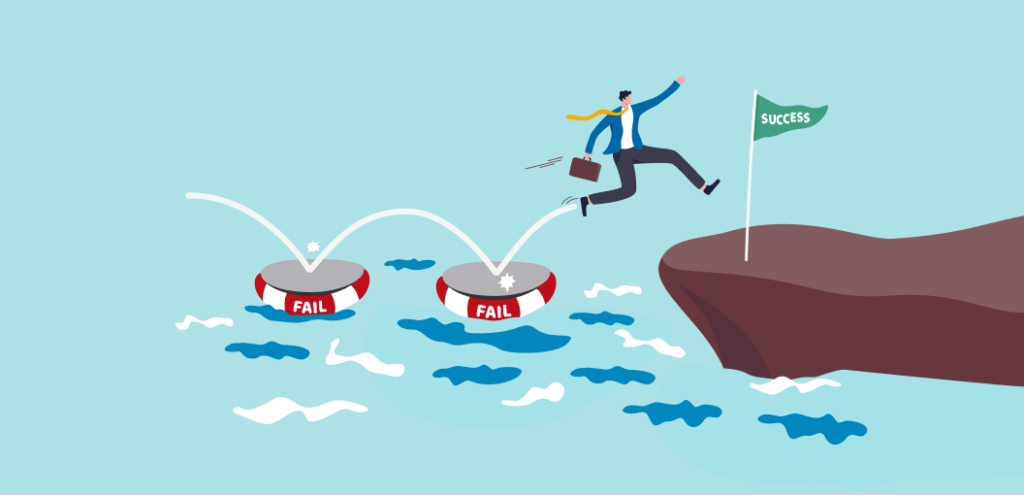Leadership is one of the most talked-about skills in the workplace environment. Because it is so popular, it is also one of the most misunderstood concepts. For example, there is a misconception that some people are simply born for leadership, but in reality, it is a skill that can be learned. Therefore, leadership skills can be developed, improved, amplified, and effectively applied to real-life situations.
Leadership is a soft skill. In other words, it is a personal ability that has to be communicated to someone. In the workplace environment, for example, having leadership skills could be the difference between effective project management and meaningless work.
Therefore, in a way, leadership is a compass or clock that indicates the direction of purpose. It also suggests the limit to which any workforce or undertaking can go within an organized framework.
In this article, our goal is to give you tips about developing leadership skills. From these tips, we expect that you will be able to demonstrate in-demand leadership skills when applying for jobs. Also, from reading this article, you should be able to know what/not to include in your resumes.

Table of Contents
Can Anyone Be a Great Leader?
The question about whether any individual can be a great leader is an old one. Some thinkers have argued that anybody can lead others effectively. These are the supporters of the idea that anybody, regardless of how important, can be useful.
Opposite this bench of thinkers is another category that argues otherwise. These people reason that we do not all have that leadership ‘spark’ in us. Instead, only a select few can be leaders, great leaders even, because they have the natural foundation for great leadership. In a few words, this second bench of thinkers argues that leaders are born, not necessarily made.
Despite the disagreement, there is something both of these categories of thinkers agree on: leadership can be developed. Therefore, whether leaders are born or characteristically made, they can also improve. Moreover, people should be able to detect leadership skills in others. These ideas, leadership improvement and leadership display, are the target of this article.
So, in response to the question of whether anybody can be a great leader, we say “yes”. We say “yes” because leadership skills can be developed and improved. This also means that regardless of who you are and what you do, you can be a great leader. We will show you how.
First, let us define leadership skills.
Leadership Skills: Definition and Examples
The most straightforward definition of leadership is that it is the ability to lead. The operative word there in this traditional definition is ability. This means that leadership is not a passive thing. Also, because of the defined purpose of this ability, it does not exist in a vacuum.
So, leadership is only valid within a framework of identified purpose, organized following, and deliberate integration of the two. By this reasoning, you should be able to tell how great a leader you are by how well you understand a specific purpose and lead people to achieve that purpose.
Leadership skills are simply the different areas of proficiency that help you lead. In other words, these are skills, usually soft skills, that boost your leadership capabilities. One of the best examples of leadership skills is effective communication. The idea here is that to lead you need to effectively express what you want or need to be done to other people. Another good example is problem-solving, in which case you must be able to overcome certain difficulties.
There are many other leadership skills. Furthermore, because the majority of these are soft skills, you can develop and boost them, and also amplify their effects.
How You Can Build Leadership Skills

The most incredible thing about building leadership skills is that they are somewhat easy to develop. As long as you can recognize them, you can grasp these skills with ease and boost your potential to use them.
Here are 5 key and compound leadership skills that are a must for workplace success.
1. Sense of Responsibility and Motivation
A sense of responsibility is one of the core leadership skills in workplace situations. It relates to purposefulness and the ability (and willingness) to recognize duty and obligation. Developing this sense of responsibility is easy. All you need to do is identify the main aim of an undertaking, group of people, or period. As long as you ensure that each of these 3 factors revolves around this aim, you will be perceived as a good leader.
Motivation is another foundational leadership skill deeply associated with a sense of responsibility. It is one of the few that has two active sides: self-motivation and the ability to inspire other people. This skill is very important because of its stimulating potential. Therefore, developing it requires you to be positive, interpersonal, and empathetic.
2. Honesty and Trustworthiness
Strength of character and a reliable commitment to personal goals are fundamental determinants of honesty and trustworthiness. Dishonest people do not make good leaders because they cannot stick to principles. Therefore, they cannot be trusted. Thus, you need to define personal principles that you will never break and stick to them.
This is what makes you a trustworthy—and therefore excellent—leader.
3. Proficient Resource Management, Effective Communication, and Team Building
Proficient or efficient resource management is one of the more traditional skills of leadership. Resource, in this context, relates to people, time, and tasks. Therefore, resource management relates to how well you can organize and direct the flow of people, the use of time, and the completion of tasks. This skill can be learned.
There are plenty of books on the subject.
Earlier on, we mentioned the value of effective communication in leadership. It is the glue that keeps leadership skills together. Associated with it are other skills such as active listening, business storytelling, written communication, and non-verbal communication. It is also one of the easiest to develop because of the many instructive materials on the subject.
Furthermore, team building is closely associated with efficient resource management and effective communication skills. It is defined by how well you can organize people. For this skill, you need to be able to collaborate with teammates and get them to collaborate with other people. Therefore, you need other skills such as emotional intelligence, effective communication, and feedback.
4. Conceptual Skills and Creativity
Conceptual skills are interesting. In a way, these skills consist of the majority of leadership skills that are useful in a workplace context. For this article, we will define them as skills that help you see the big picture. They give you a bird’s-eye view of everything in any situation. Thus, these skills are important for vision, critical thinking, problem-solving, and strategy implementation.
Creativity follows after conceptual skills in that it puts them to good use. For leaders, creativity combines foresight with imaginativeness, not necessarily radical innovativeness. The result is an ability to detect patterns, develop methods, or adapt ways through which a problem can be solved. As a creative leader, therefore, you ought to be able to recognize what is both common (ordinary) and rare (odd) in or about a situation. Then you can take creative advantage of this situation by influencing these things.
5. Flexibility
Flexibility is a leadership skill that helps you recognize and adjust to unanticipated situations. It revolves around how quickly you can respond to such situations and the methods you apply. In leadership, this skill is important because it is more managerial than it is personal. Consider, for example, that the allotted period for a specific task is shortened. You need flexibility to reorganize resources to meet new task objectives.
There is nothing better for your job prospects and career than having all of these 5 key leadership skills.
How to Showcase Your Skills When Applying for Jobs
Leadership skills are amazing when you have a stage to display them. Ideally, the workplace environment is the perfect stage. However, there is a beginning to everything, and a job seeker cannot possibly display every important leadership skill during interviews. So, to showcase your leadership skills when applying for jobs, you need to use both your resume and cover letter effectively.
The best resumes have leadership skills in them. You can include all of the skills we touched on in the previous sections in your resume. Yes, how you include these skills might vary depending on the job you are applying for. Nevertheless, leadership skills are required by every industry and business sector, so you don’t lose anything when you insert them into your resumes and cover letters.
You can consult ResumeKit to write effective resumes and cover letters with leadership skills included.
In conclusion, keep in mind that leadership skills are valued everywhere. There is nothing better than having them in multiple dimensions, as this article has shown. The more of them you have and display in the workplace, the more valuable you will be to your superiors, co-workers, and subordinates.